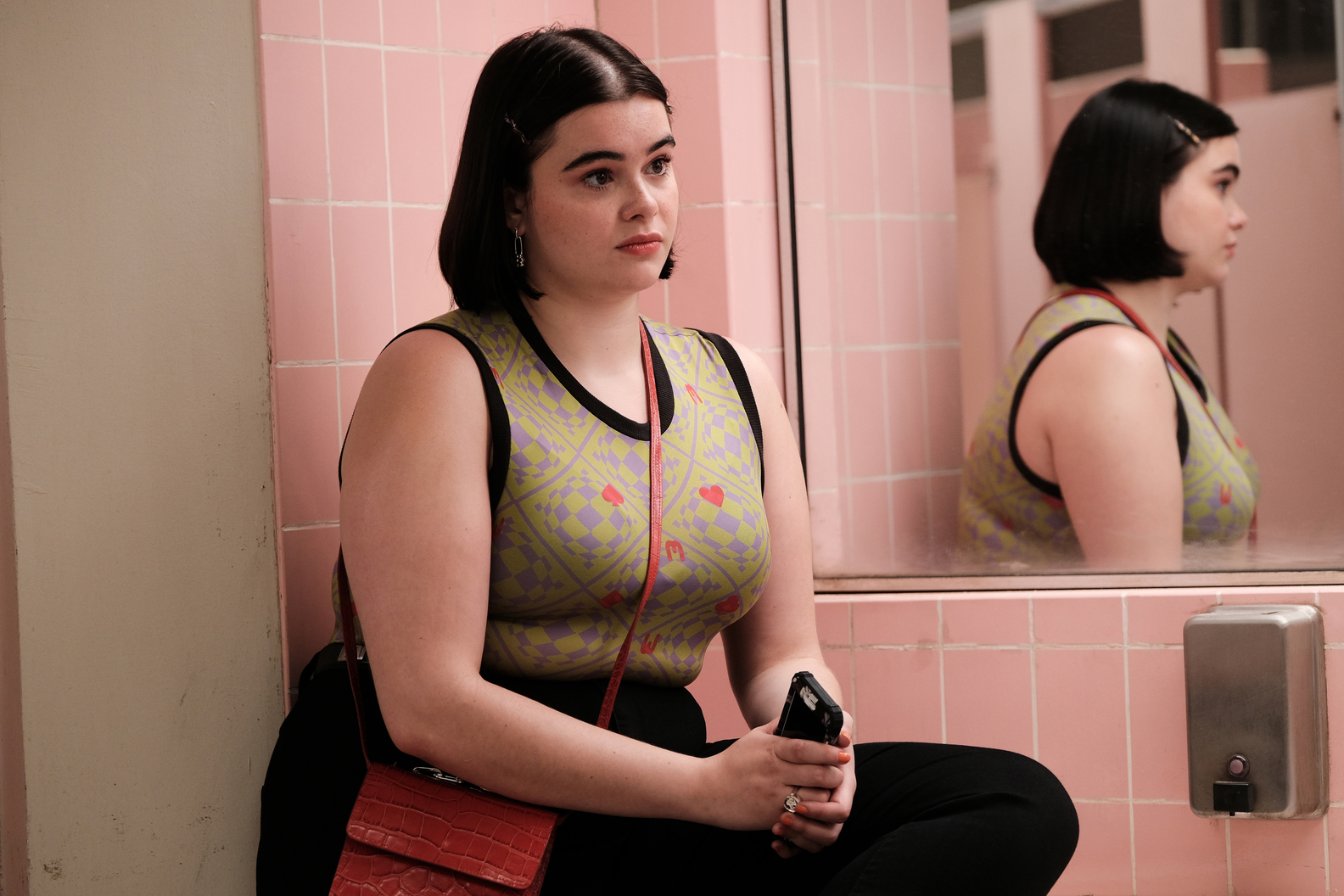While Brazil might be Latin America’s largest country, Brazilian representation in US media is in short supply. Even though Brazilian stars have had crossover success in the US – everyone from Carmen Miranda to Wagner Moura to Alice Braga – they usually do so while playing Latine characters of other nationalities. There have been few Brazilian characters on our screens in the US, and even fewer who are Brazilian American and reflect diasporic experiences. In 2023, this pattern might finally change.
Camila Mendes, of Riverdale fame, has increasingly become one of the most visible Brazilian American Latinas working in Hollywood. With Riverdale coming to an end after its seventh season, Mendes is exploring more projects and more roles, like her pitch-perfect turnout in Jennifer Kaytin Robinson’s love letter to 90s teen movies, Do Revenge.
She’s also tackling – for the first in her career – a role that reflects her Brazilian identity. Mendes is executive producing and acting in Rudy Mancuso’s (of Vine fame and himself Brazilian American) directorial debut, the romantic comedy Música. Set in the Brazilian community in Newark, New Jersey, Música is focused on Mancuso’s character as he navigates life and love while always having music playing in his head. While the fact that Mendes is leading and producing this film is notable and worth celebrating on its own, the fact that she, and presumably the rest of the cast, are portraying Brazilians is even more exciting.

In an interview for Net-a-Porter, Mendes noted how filming this movie was especially meaningful because: “[Even] characters in movies that are written to be Latin are never Brazilian; they are always from a different country. We have a whole audience here desperate to see themselves represented on screen; why aren’t we taking advantage of that?” Música, which will likely come out in 2023 , will hopefully be one in a long line of films featuring Brazilian American representation.
Mendes won’t be the only Brazilian actress gaining visibility in 2023. Blue Beetle is being boasted as the DC universe’s first foray into centering Latine superheroes. In it, Brazilian actress Bruna Marquezine plays Penny, the love interest of the titular Blue Beetle Jamie Reyes (played by Xolo Maridueña), and more importantly, the female lead. Even though some might call Marquezine a newcomer, she boasts an extensive career in Brazilian television, including the show Maldivas on Netflix and leading roles in different Brazilian telenovelas. While little is known about who Penny is – and whether she’ll reflect her actress’s nationality– Marquezine is getting a launch into Hollywood that is rare for any Latina actress, let alone a Brazilian one.
Finally, Brazilian American actress Barbie Ferreira, like Mendes, is starting to explore her career after her iconic turn in the much-talked-about HBO teen drama Euphoria. She’s set to star in the Blumhouse-produced House of Spoils, a movie about a chef opening her first restaurant (who’s played by another record-breaking Latina, Ariana DeBose) with Ferreira as her sous-chef. There’s no news yet on character details, so we don’t know whom Ferreira is playing and if her background is going to be featured in the film. However, as Ferreira herself is a daughter of a Brazilian chef, there’s hope (at least in my eyes) that the actress’s own story could be interwoven into the film. House of Spoils finished filming in late 2022 and also has no release date.

Even if Ferreira and Marquezine’s characters aren’t Brazilian Latinas, there’s no ignoring the visibility we will have in the next few years. Depicting both ethnicity and nationality in Latine representation is complicated. The reality is that often a Latine character’s specific ethnicity or nationality is never explicitly outlined. On top of that, Latine actors often play Latine characters of other nationalities. While Latine representation can include both these attributes and still be authentic and powerful, there’s no ignoring the fact that Latine audiences, myself included, want to see stories that fully and explicitly embrace all facets of a character’s Latine identity – including all the specificities that set different Latine nationalities apart.
Shows like Vida, One Day at a Time, The Gordita Chronicles, and movies like Real Women Have Curves and In the Heights (even while being notably problematic) depict cultural specificity that allows people to be fully seen. The characters leading these stories aren’t only Latine – they’re Mexican, Cuban, Dominican, and more. Our and our family’s countries of origin define what foods we eat, what music we listen to, how we celebrate holidays, and how we mourn. Such specificities are what make Latine viewers of different nationalities feel seen and reflected, and for everyone else watching, what makes these stories feel more authentic and remarkable.
Even though the Brazilian American population, at 1.7 million (depending on whom you ask) is similar in size to other smaller Latine ethnic groups in the U.S., Brazilian characters have scarcely been shown on screen. But now with Mendes, Marquezine, and Ferreira leading films coming out in the next few years, I finally might be fully able to see myself represented as a Brazilian Latina – with our caipirinhas, pastéis, and samba – after a very long time of settling with seeing myself as through Latine film characters of other ethnicities and nationalities.

